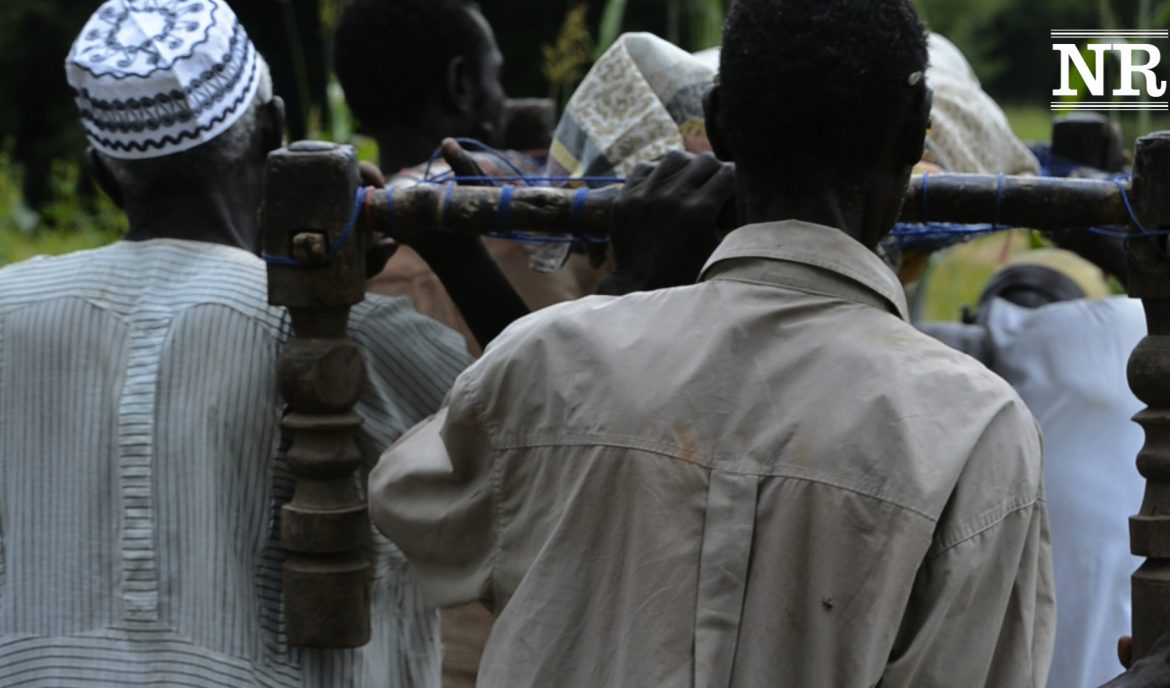On Thursday, September 27th, Sudan government planes dropped six bombs in Heiban near a bustling weekly marketplace.
More than 2,000 people gather each Thursday at the bizarre, one of the largest in South Kordofan. With food aid still denied from entering the region, the market plays an important role by allowing people to sell personal possessions to buy food.
Market day in Heiban is a well-known event. It is likely the Sudan government took advantage of the populated scene to foster more fear and unrest in the people of South Kordofan, many of whom oppose the ruling government of Omar al-Bashir. The bombs fell just 100 meters from the crowds, wounding six and killing one woman, Asia Kharri Kuku, a mother of seven children. Two of the bombs fell in the farm surrounding Heiban Church where Ms. Kuku was assisting with the peanut crop when she was hit.
Nuba Reports spoke with Yagoub Ibrahim, a pastor for the church. “Our government does not understand peace at all,” he says. “The civilians in their farms,” Ibrahim notes, “are innocent people.”
At the very moment the bombs fell, peace was the issue in Addis Ababa. The presidents of Sudan and South Sudan, Omar al-Bashir and Salva Kiir, respectively, met in the Ethiopian capital to sign an agreement. Among the items on that agenda is a proposal to establish a demilitarized zone along the border of the two nations. South Kordofan lies within the violence-prone border region and its people are frequently the target of government sanctioned attacks. The timing of the bombing did not go unnoticed by Yagoub Ibrahim. “The government is claiming they want to negotiate peace. What kind of peace,” he asks, “comes from this kind of killing?” The bombs in Heiban are just six of more than thirty to fall in the region in September alone.





